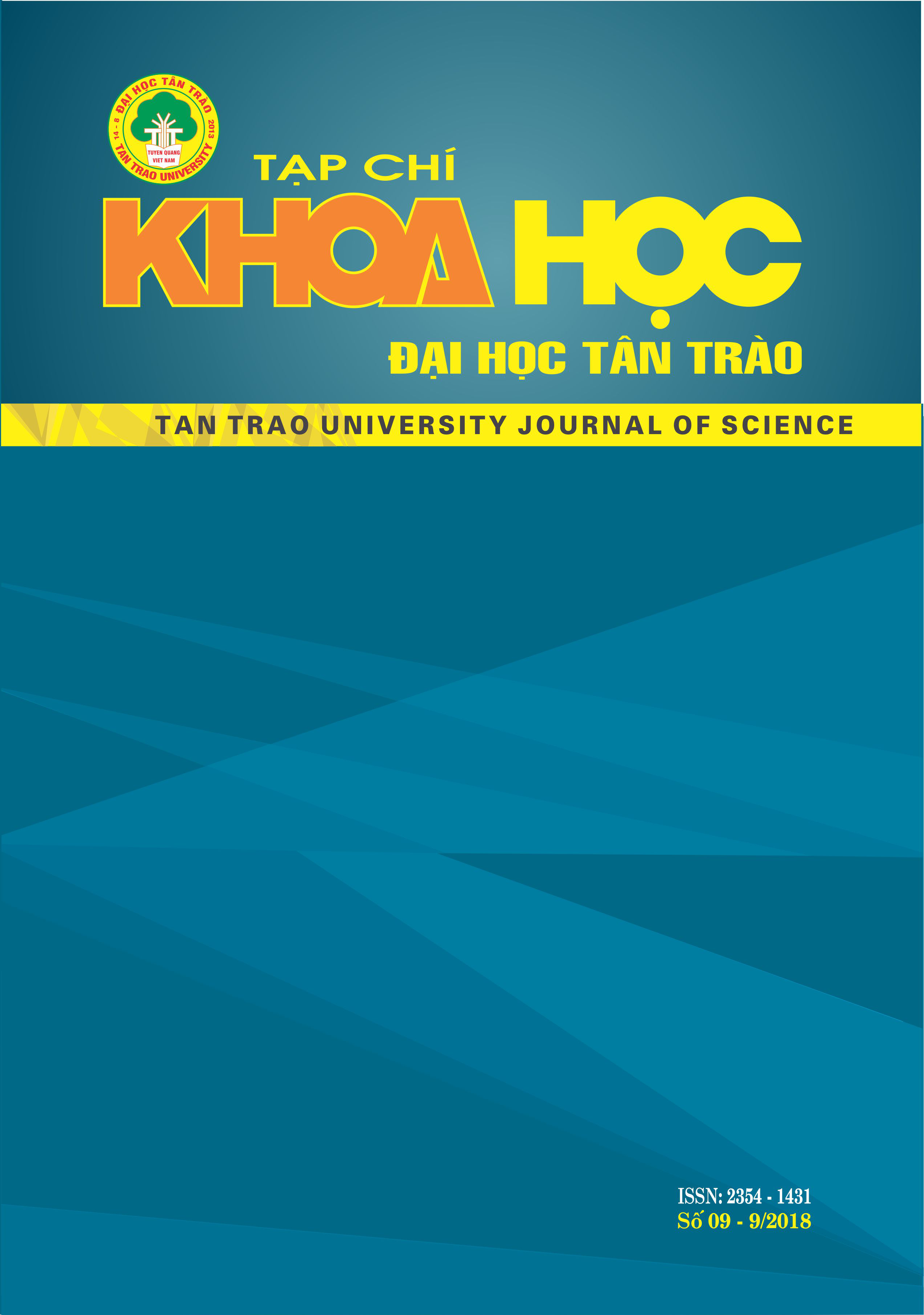Developing creative ability for pedagogical students
DOI:
https://doi.org/10.51453/2354-1431/2018/187Keywords:
Development, ability, creativity, creative ability, pedagogical students.Abstract
Teachers are the decisive factors for the quality of education and training. In order to improve the quality of education, it is necessary to improve the quality of the teaching staffs and the quality of training teaching staffs. Therefore, if students at colleges of education want to become creative teachers, the first things is that they must develop their creative abilities when they are students. The paper articleanalyses deeply some issues: the creative ability? Objectives, contents, methods of developing creative ability for pedagogical students; The process of developing creative ability for pedagogical students.
Downloads
References
1. Côvaliov A. G. (1971), Tâm lý học cá nhân, tập 2, Nxb Giáo dục, Hà Nội;
2. Bernd Meier, Nguyễn Văn Cường (2011),Cơ sở đổi mới phương pháp dạy học, Potsdam - Hà Nội;
3.Trần Việt Dũng (2013), Một số suy nghĩ về năng lực sáng tạo và phương hướng phát huy năng lực sáng tạo của con người Việt Nam hiện nay, số 49 (trang 160 – 169);
4. Đảng Cộng sản Việt Nam (2011), Văn kiện Đại hội Đại biểu toàn quốc lần thứ XI, Nxb Chính trị Quốc gia, Hà Nội;
5. Hà Mỹ Hạnh (2016), Phát triển năng lực hoạt động xã hội cho sinh viên sư phạm khu vực miền núi phía bắc trong đào tạo theo học chế tín chỉ, Nxb Đại học Thái Nguyên;
6. Huỳnh Văn Sơn (2009), Tâm lí học sáng tạo, Nxb Giáo dục Việt Nam, Hà Nội;
7. Nguyễn Quang Uẩn (chủ biên) (2005), Tâm lí học đại cương, Nxb Đại học Quốc gia Hà Nội;
8. Nguyễn Quang Uẩn, Trần Trọng Thuỷ (2009), Tâm lý học đại cương, Nxb Đại học Sư phạm;
9. Weiner, F.E (2011), comparative performance measurement in schools, Weinhei and Basejl: Beltz Verlag, pp. 17 - 31.
Downloads
Published
How to Cite
Issue
Section
License

This work is licensed under a Creative Commons Attribution-ShareAlike 4.0 International License.
All articles published in SJTTU are licensed under a Creative Commons Attribution-ShareAlike 4.0 International (CC BY-SA) license. This means anyone is free to copy, transform, or redistribute articles for any lawful purpose in any medium, provided they give appropriate attribution to the original author(s) and SJTTU, link to the license, indicate if changes were made, and redistribute any derivative work under the same license.
Copyright on articles is retained by the respective author(s), without restrictions. A non-exclusive license is granted to SJTTU to publish the article and identify itself as its original publisher, along with the commercial right to include the article in a hardcopy issue for sale to libraries and individuals.
Although the conditions of the CC BY-SA license don't apply to authors (as the copyright holder of your article, you have no restrictions on your rights), by submitting to SJTTU, authors recognize the rights of readers, and must grant any third party the right to use their article to the extent provided by the license.


